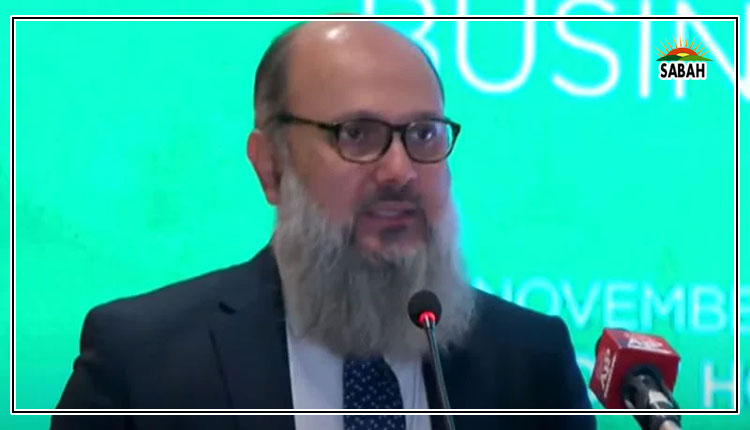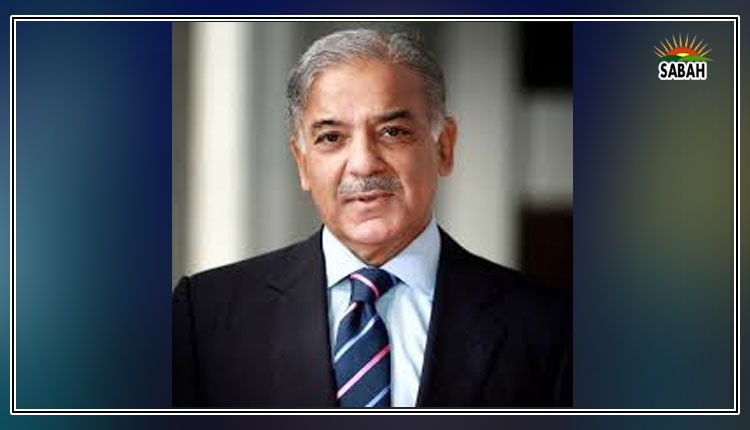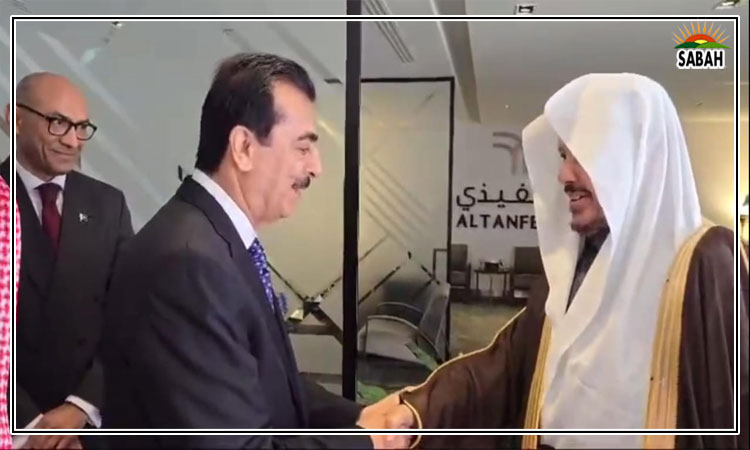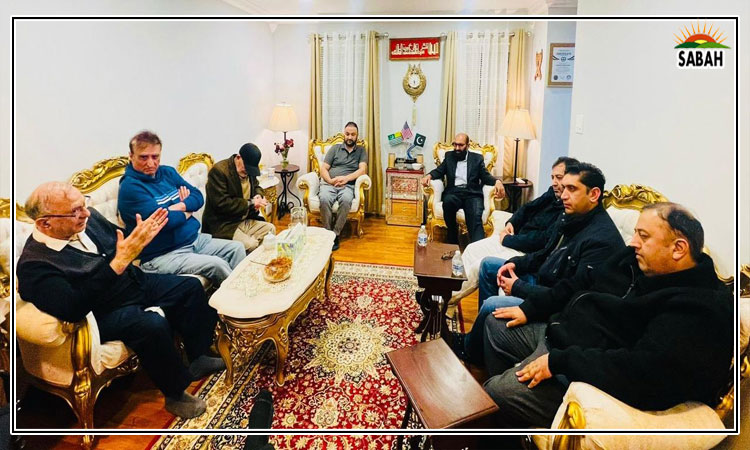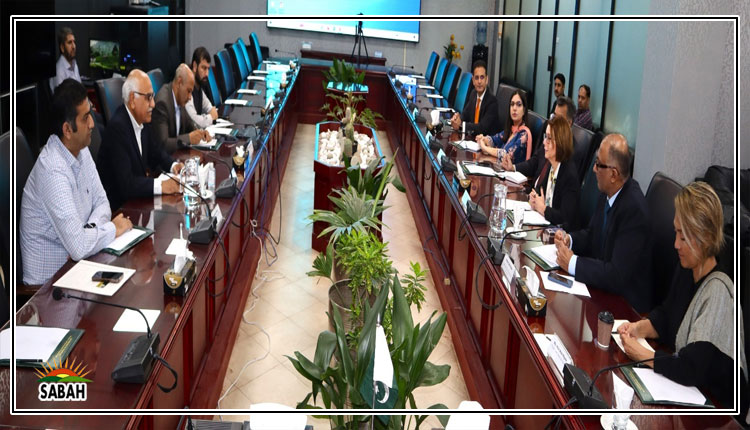BISP & World Bank renew pledge to bolster support for marginalized communities
ISLAMABAD, Nov 02 (SABAH): Benazir Income Support Programme (BISP)) and World Bank (WB) have reiterated their commitment to continue working together to strengthen the marginalized segments of society and ensure relief to the poorest of the poor.
This was expressed in a meeting between Chairperson BISP Dr. Muhammad Amjad Saqib and a high-level delegation of the World Bank, held at BISP Headquarters on Thursday.
World Bank delegation was led by Ms. Kicole Klingen, South Asia Regional Director (Human Development), accompanied by Ms. Hnin Hnin Payne, Program Leader (Human Development), Amjad Zafar Khan, Senior Social Protection Specialist, Gul Najam Jamy, Senior Consultant, Sohail Saeed Abbasi, and Ms. Amna Khan, while Chairperson BISP, Dr. Muhammad Amjad Saqib was accompanied by DG NSER Mr. Naveed Akbar and Director IC&C Mr. Rashid Imtiaz.
On the occasion, Dr. Amjad Saqib, provided the World Bank delegation with a comprehensive overview of BISP’s initiatives including Kafaalat, Taleemi Wazaif, Nashonuma, National Socio-Economic Registry (NSER) and shared insights into the achievements of the programme over the past 15 years.
Discussing the challenges faced by BISP, Dr. Amjad Saqib outlined his vision for new initiatives to be adopted by the program. He emphasized the importance of ensuring transparency and reassuring needy women that no amount would be deducted from their stipend. Dr. Saqib also proposed the utilization of the services of more banks to enhance ease during payment disbursement and suggested an increase in the stipend amount.
Furthermore, Dr. Saqib discussed the induction of new poverty graduation programs focusing on self-reliance of these families, technical education for children, programs for orphans and widows, and the creation of endowment funds for the needy families. He highlighted BISP’s commitment to building a positive image of support, emphasizing that it is not a charity but a program rooted in solidarity and an expression of love for those in need. Dr. Saqib suggested using religious places like mosques, churches, and temples as community centers to further the welfare of the needy.
In the meeting, Ms. Kicole Klingen commended the concept of BISP and described it as a great initiative aimed at providing support to marginalized segments of society, particularly women and children. She also praised BISP for its impressive 10-day response time during crises such as the Floods and COVID-19. Ms. Kicole Klingen recognized BISP as one of the exemplary models in the field of social protection, urging others to learn from BISP’s valuable experiences.
Ms. Kicole Klingen expressed the World Bank’s commitment to providing continued support to BISP in the future. Later on, the World Bank delegation also visited the One Window Facilitation Center in G-7 Islamabad and appreciated the registration process and payment mechanism of BISP for the needy women benefiting from the programme.
Meanwhile Dr. Muhammad Amjad Saqib has said that we need to seek guidance from the Holy Quran in order to establish Islamic financing principles.
Dr. Saqib made these remarks during his address at the 3-Day International Conference on “Advancing Islamic Finance” – Principles, Practices, and Regulatory framework for Sustainable Growth. The conference was organized by Allama Iqbal Open University (AIOU), Centre for Excellence in Islamic Finance (CEIF), Institute of Management Sciences (IMC) Peshawar.
Dr. Amjad Saqib highlighted the exceptional work being done by the Benazir Income Support Program (BISP). He noted that BISP is providing financial assistance to 9.3 million deserving families through the Benazir Kafaalat program. Additionally, children from these needy families are receiving education under the Benazir Taleemi Wazaif initiative. Dr. Saqib also commended the Benazir Nashonuma program for its efforts to care for pregnant, lactating mothers, and infants, addressing issues of stunting and malnutrition.
Dr. Amjad Saqib who is also the founder of Akuwat Foundation, said that Akuwat is as an embodiment of interest-free loans, brotherhood, and respite. He lauded Akuwat as the largest interest-free loan program, providing interest-free loans totaling Rs. 210 billion to over 4 million families, with a remarkable loan recovery rate of 99.9%.
In his insightful address, Dr. Amjad Saqib emphasized the need to adopt Islamic principles in our economic systems requires a holistic transformation. He expressed that to truly follow the tenets of Islamic financing, we must turn to the Holy Quran for guidance rather than relying solely on Western economic knowledge. This paradigm shift necessitates a comprehensive transformation at multiple levels, including individual behavior, societal norms, market practices, and business models, he added.
Dr. Amjad Saqib stressed the gathering of Islamic scholars, experts, and practitioners of Islamic Financing, that there is no scarcity of resources in the world, and the issue lies in the unequal distribution of these resources. He highlighted the correlation between the Sustainable Development Goals (SDGs) outlined by the United Nations and the teachings of the Quran and Sunnah, emphasizing that it is the religious duty of individuals and societies to work towards achieving these goals.
Dr. Amjad Saqib passionately conveyed that interest is prohibited in Islam and that Islamic Financing encompasses everything except interest-based loans. Providing interest-free loans is in line with Islamic values and Sunnah, underscoring that it is not a burden on the dignity of the recipients but a means to empower them, he said.
Dr. Muhammad Amjad Saqib’s visionary perspective on Islamic financing demonstrates a commitment to advancing economic systems rooted in ethical principles and equitable distribution of resources.



